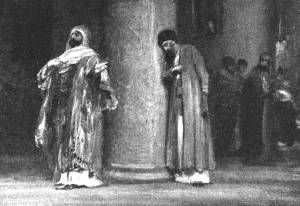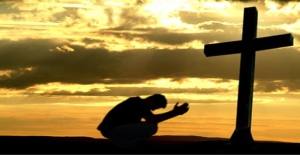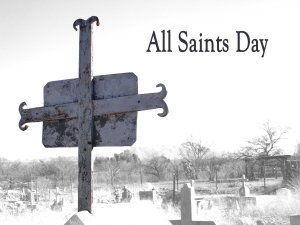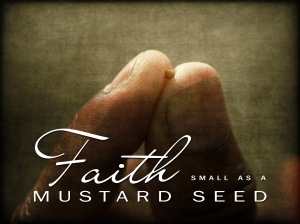Luke 17:11-19 NRSV
On this exciting Homecoming Sunday morning, it is an honor and it gives me great joy to say to you: “Welcome home!”
We have been expecting you. In fact, we have been eagerly anticipating your arrival for weeks as we have pulled out all the stops! You will notice we’ve moved benches to the breezeway to make the grand, cordial statement: “Welcome! Sit down, make yourselves comfortable, and stay awhile!”
The brick pavers have been pressure washed, which is our way of rolling out the red carpet! Fresh pine straw has been spread, the bushes have been trimmed, mums have been planted, and the doors have been painted. The planter out front looks like autumn. The sign outside is so clean, you could eat off it! And speaking of eating, a pig is ready to be picked, the beef is tender, the chickens are fried, the casseroles are plentiful and the tea is sweet! Countless deserts are ready to be sampled! All of this to say to you this day, “Welcome home! Here you will find a most hospitable grace and an extravagant, unconditional love.”
But now that you are here, now that you are seated comfortably with your friends and neighbors, I need to give you a word of warning, and with all of the extravagant hospitality that is going on here this morning, this cautionary word may sound a bit strange, if not inhospitable. Here it goes: “Welcome Home! Too bad you can’t stay.”
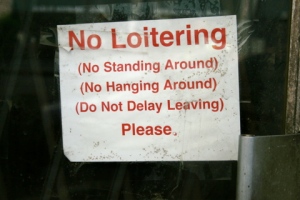 Sit down and make yourself comfortable, but don’t get too comfortable. Appreciate the budding flowers and the fresh pine straw, but don’t fall in love with it. Enjoy the sumptuous feast. Eat and drink until you are satisfied, but afterwards don’t expect to find a place around here to sprawl out and take a nap! Welcome home! But don’t make yourself at home. Because the One we worship this day, the One we have chosen to follow is always on the move!
Sit down and make yourself comfortable, but don’t get too comfortable. Appreciate the budding flowers and the fresh pine straw, but don’t fall in love with it. Enjoy the sumptuous feast. Eat and drink until you are satisfied, but afterwards don’t expect to find a place around here to sprawl out and take a nap! Welcome home! But don’t make yourself at home. Because the One we worship this day, the One we have chosen to follow is always on the move!
Jesus certainly never made himself at home. Earlier, in Luke’s gospel we read Jesus saying: ‘Foxes have holes, and birds of the air have nests; but the Son of Man has nowhere to lay his head’” (Luke 9:58).
Jesus was on a journey and the first words of our scripture lesson this morning remind us what type of journey that was: “On the way to Jerusalem…” Jesus was following a way of self-denial, self-giving, and sacrifice. He was on the way to the cross. The world, of course, calls this way a foolish way. Jesus called it the only way.
On the way to Jerusalem, Luke tells us that “Jesus was going through the region between Samaria and Galilee.” Talk about foolish. First of all, every good Jew knew when you traveled from Galilee to Jerusalem it is always best to take the Samaria-Bypass to avoid the unfriendly Samaritans. And Jesus, who had already been turned away from the Samaritans because, “his face was set towards Jerusalem” (Luke 9:53) knew going down any other road was considered to be very unwise.
Secondly, because the two countries bordered one another, going through a region between Samaria and Galilee makes about as much sense as going into a region between North Carolina and Virginia. Not only does Jesus take the road less traveled, Jesus takes it to some in-between place. Perhaps it was like some place outside of Fountain. Hang a left off of 258 and who knows what county you’re in! Wilson? Pitt? Edgecombe? Or somewhere in between?
And it is in this in-between pace, where boundary lines are blurred, Jesus starts to enter a village. Is it in Samaria or Galilee? Who knows? And it is there, at the edge of this village, where he is approached by ten lepers. Some from Galilee; others Samaria.
Leprosy is described by Leviticus 13 as a white rash or swelling on the skin. Leprosy may or may not itch and is not contagious. What made the disease so horrible was not so much the physical pain as it was the spiritual pain. Lepers were considered to be unclean like none other, thus forced to live outside of villages away from the general population. The ten lepers are living somewhere out on the edge of town when they see Jesus entering the village and cry out, “Jesus, master, have mercy on us.”
Jesus orders them to go show themselves to a priest so they could be restored immediately and welcomed back home to life within their communities. As they went, Luke says that they all were made clean. Then one of them, just one out of ten, one who just happened to be a foreigner, a Samaritan, returned praising God and thanking Jesus.
So you see? As welcomed as we are here in this place, as warm and as comfortable we may feel here, as sweet as the tea and the pecan pie tastes, Jesus wants all of us to get out of here!
Jesus wants us to get out here, leave home, to share the good news of God’s hospitable grace and the unconditional love we experience here with all people. And the gospel is specifically calling us to venture out, to leave our comfort zones, this place we call home, to minister to folks who feel very far from home. And the irony is that we do not have to go far from home to find them.
Our church has been invited to minister to the residents at the Heritage Nursing Home in Farmville each Sunday morning in November. When we go, guess who we will find?
We will find men and women who have lost track of time and space. Sometimes they have trouble discerning whether it is day or night, the weekend or a weekday, even discerning their current whereabouts. And there are folks like these are everywhere. They are in nursing homes and hospitals and some are at home, but are they far from home: countless people living somewhere in-between. Lines blurred; time and space, fuzzy.
No, you do not have to travel far to find people everywhere who have lost track of time and space due to depression, overwhelming grief, all types of sickness and pain, anguish, anxiety, addictions, financial stress, dementia, or the side effects of medication. They are lost and alone, grieving, suffering, despairing—living on the edge. Some may be incarcerated, imprisoned by the state, while others reside at in a perpetual imprisoned state. Some feel abandoned by family. Some feel abandoned by the church, and some even feel abandoned by God. Some are not sure if God is for them or against them. For a myriad of reasons, within their souls they are drifting, roaming far from home barely getting by in a foreign state of mind and spirit.
But Jesus, we like it…here! We’re home and we’re comfortable. And not only does it make us uncomfortable to be around the lost, it discourages us. Jesus, we have gone out before. We have visited the hospitals. We have been to the nursing home. We have stood in line at the funeral home. We have sat for hours with our lost neighbors, and we have served countless meals to those living on the edge at the Soup Kitchen. We have even visited the prisons. Each time we went, we extended your grace and shared your love. But, here’s the thing Jesus, very few ever seem to be receptive.
Jesus says, “Odds are: only about one out of ten. And yes, it’s discouraging, but here’s the good news, when you find that one who is receptive, they may have something wonderful to teach you about faith in God and salvation.”
After Jesus asked about the other nine, and pointed out that it was a “foreigner” who returned to give thanks, Jesus tells the foreigner that his faith had made him well, or more literally, his faith had saved him, thereby making this foreign, estranged outsider living in a fuzzy, blurred-lined, in-between kind of place a lesson of salvation for us all.
Last month I had the privilege to visit with a beautiful woman during her last days on this earth at the Hospice Home in Greenville. She was only 64 years old. One day, I arrived around 4 in the afternoon. She looked at the clock and asked me why I had come to see her so early in the morning. Her mind, clouded by morphine, did not know if it was day or night.
That same week, during a visit with her daughter, the dying woman, with tears in her eyes, asked a very familiar question. She asked: “Lord, Why me?” The daughter thought to herself, “Yes, mama, why you? Why do you have to have the stupid disease? Lord, Why you?
Her mother then surprised her daughter by finishing her question. She asked: “Why me, Lord? Why am I so lucky? Why have so many people come to visit me while I have been sick? Why do I have such a loving family, such good friends? Why do I have such a wonderful life?
Instead of being bitter about the years she would not have, she was grateful to God for the years that she did have. Instead of being angry that she was leaving her beloved family and dear friends, she was grateful that she had devoted friends and family. Even in a state where lines were blurred, time and space—fuzzy, she recognized that all of life is but a gift of God’s inexplicable grace. And there in a foreign place, living on the edge in-between life and death she turned, thanked Jesus and praised God.
And her daughter knew, beyond a shadow of a doubt, that her mother was saved.
I believe Jesus pointed out that it was a foreigner whose faith had saved him as way of saying to us: “Dare to leave your comfort zone to minster to those who are struggling somewhere in a foreign state, but when you go, it is important to realize that you do not go as if you are one with all of the answers, possessing all of the faith, going out as if on a crusade to save all those with less faith. Because oftentimes, says Jesus, it is the one living on the edge, the foreigner, who can teach us a thing or two about faith in God and salvation.
The table has been set, the grounds have been prepared and the feast is ready! We cannot welcome you more. But just remember, you cannot stay here. Enjoy your dinner, your sweet tea and pecan pie, but if you want to be the church and the people that God is calling you to be, you’ve got to get out of here. You have to leave this comfort zone to share the hope, grace, love, good news and hospitality you experience here at home with all those who are very far from home.


